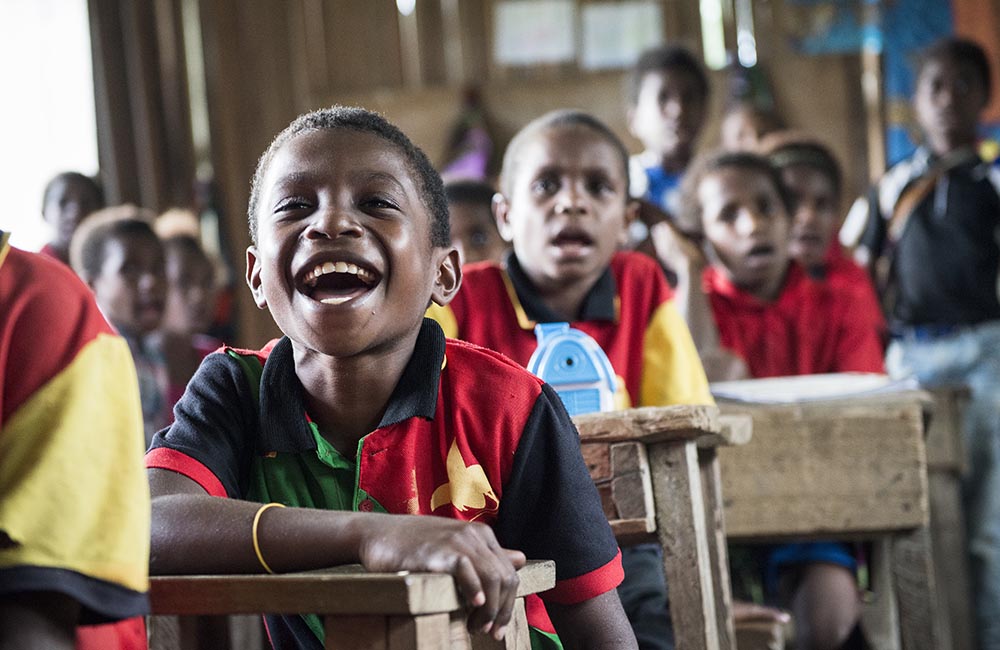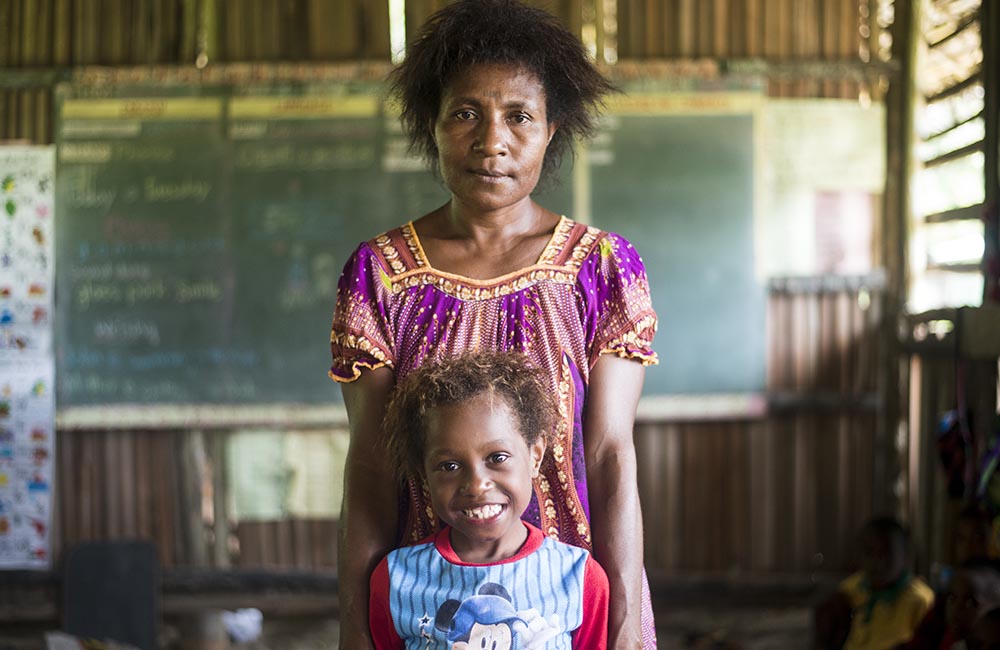A better education for children in Papua New Guinea
Children learn best when they have competent teachers, a supportive community and quality resources. Yet these basics are not often available to girls and boys in Papua New Guinea. We’re engaging parents and communities to create a culture of reading, and we’re working to ensure elementary schools meet the needs of girls and children with disabilities.
Why strengthening schools in Papua New Guinea is important
Many children in Papua New Guinea don’t have access to a quality education. Remoteness, gender inequity, exclusion and lack of teaching and learning resources are all factors that stop children reaching important milestones in their learning.

Girls in Papua New Guinea are more likely to drop out of school than boys. And children with disabilities often don’t get to go to school at all.
Yet with a strong education children can have more say in their future. Girls who are supported to stay in school have more skills and confidence to break down gender-based barriers, seek employment and support their communities. And giving children living with disabilities a chance to learn can significantly change their quality of life and the opportunities available to them.
Save the Children’s Rapidly Improving Standards in Elementary Education (RISE) program
We’re improving foundational learning in Papua New Guinea’s elementary schools by training teachers to develop literacy and numeracy among students, using the school-based curriculum for English, vernacular (local language) and mathematics. We’re supporting them to make their own resources using natural objects and we’re creating storybooks in 30 different languages.

We’re also training early childhood teachers to better prepare children for elementary school. The first few years of a child's life are critical for cognitive, social, language and physical development. Ultimately, this period will shape the rest of their childhood, adolescence and adult life.
Our RISE program engages parents and communities, as they are instrumental in encouraging children to stay in school. We’re establishing community reading clubs, and supporting parents to read to their children and play math games.
We’re also looking at effective ways we can ensure girls are supported to stay in school, and equipping teachers and schools with new accessible learning tools that will enable children with disabilities to have a place in their local classroom.
Local stories in local language
“I am so excited to help make these stories. You cannot be a leader in our community without knowing our language, now our children will learn to read in our language and our community will be stronger because of these books.” – Program participant
An astounding 820 languages are spoken in Papua New Guinea, making this tiny country the most linguistically diverse nation in the world. Yet most of these languages are not represented in the school curriculum.
Storytelling is one of the most natural ways children learn about culture, history and the world around them, which is why Save the Children and the Papua New Guinea Summer Institute of Linguistics have been working together to make story books in local languages.
We travelled to some incredibly remote locations – across Wewak, Buka and Ukarumpa – to develop the books and now have 64 stories in Tok Pisin and 30 other languages.
These books – known as vernacular stories – will be used in local classrooms to improve foundational literacy and build a culture of reading for girls and boys, as well as their communities.